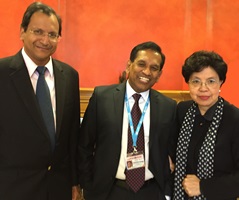

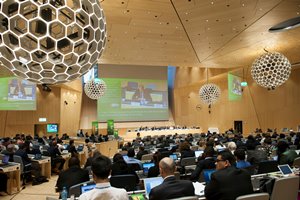
Permanent Representative of Sri Lanka to the UN in Geneva, Ambassador Ravinatha Aryasinha said Sri Lanka had taken a lead in multi-lingual Internet initiatives, by putting in place technical conditions to facilitate the presence of its local languages on the Internet and encouraging the development of relevant Sinhala and Tamil content, thus ensured cultural and linguistic diversity and identity.
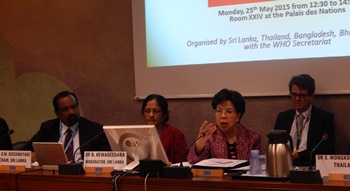
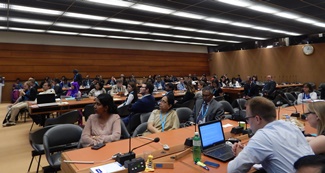
Dr. Margaret Chan, the Director General of the World Health Organization (WHO) has said "“Pictorial warning is the most cost effective means of controlling tobacco related Non Communicable Diseases (NCDs), including cancer “, and that "countries can get return on their investment in multiple areas". Paying tribute to countries including Sri Lanka whom she said "had the courage to keep going despite heavy resistance by the tobacco industry", Dr. Chan said "without our joint effort, you know what effect tobacco would take. We should not allow an industry to intimidate governments, make money and leave you with all the health consequences". She urged that "the international community come together to fight the tobacco industry".
Dr. Chan made these observations when she inaugurated a session on the theme “Strategies to overcome resistance against pictorial warning messages in tobacco products”, hosted by Sri Lanka on the sidelines of the 68th World Health Assembly at the Palais des Nations in Geneva on Monday (25th May 2015).
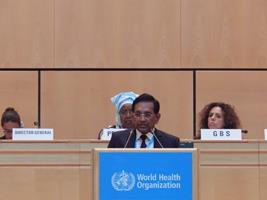
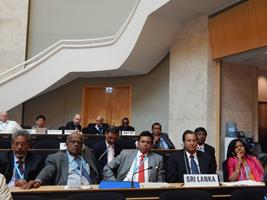
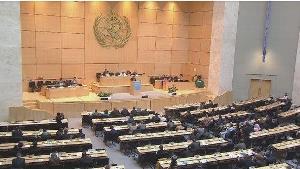
Minister of Health and Indigenous Medicine Dr Rajitha Senartne today (19 May 2015) addressed the 68th World Health Assembly held in Geneva and highlighted the progress Sri Lanka has made in achieving the Millennium Development Goals and universal health coverage, particularly with respect to Maternal & Child Health and the control of communicable diseases.
Highlighting the health scenario in the country he said that under the guidance of President Maithripala Sirisena, the country is poised to enter a new phase of health development and pointed out that the health burden of the country is now moving more towards non communicable diseases, such as cardiovascular, respiratory neoplasm and diabetes, which account to over 70% of deaths.


Sri Lanka addressed Third Session of the Open-ended Intergovernmental Working Group on a Draft United Nation Declaration on the Right to Peace held during 20 – 24 April 2015 in Geneva.
Full Statement
Permanent Mission of Sri Lanka
Geneva
27 April 2015
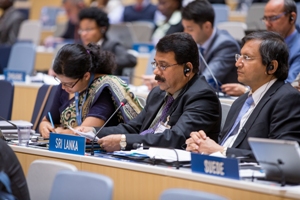
The Director General of the Geneva based World Intellectual Property Organization (WIPO) Dr. Francis Gurry, has assured support to the government's policy of orienting Sri Lanka towards a knowledge and innovation economy. Recalling his visit to Colombo in November 2013 when a 10 Point Action Plan was developed to strengthen IP related activity in the country and cooperation between Sri Lanka and the WIPO, Dr. Gurry commended the progress already made under this programme, and discussed modalities to further assist Sri Lanka.
Dr. Gurry made these observations when Secretary of the Ministry of Industry and Commerce Mr. S.S. Miyanawala met him on the sidelines of the 15th Session of the Committee on Development and Intellectual Property (CDIP) held 20-24 April 2015. Sri Lanka's Permanent Representative to the UN in Geneva Ambassador Ravinatha Aryasinha, Sri Lanka's Permanent Representative to the World Trade Organization Ambassador Nimal Karunatilake and Second Secretary Dilini Gunasekera were associated in the discussion.
- Sri Lankan Inventors win gold at the 43rd International Exhibition of Inventions of Geneva, Switzerland, the world’s largest market-place for inventions
- Ambassador Aryasinha speaks on "The Role of Women in Peace-building: a Sri Lankan perspective"
- Minister Amaratunga urges International Community to increase global cooperation in disaster manangement with developing countries
